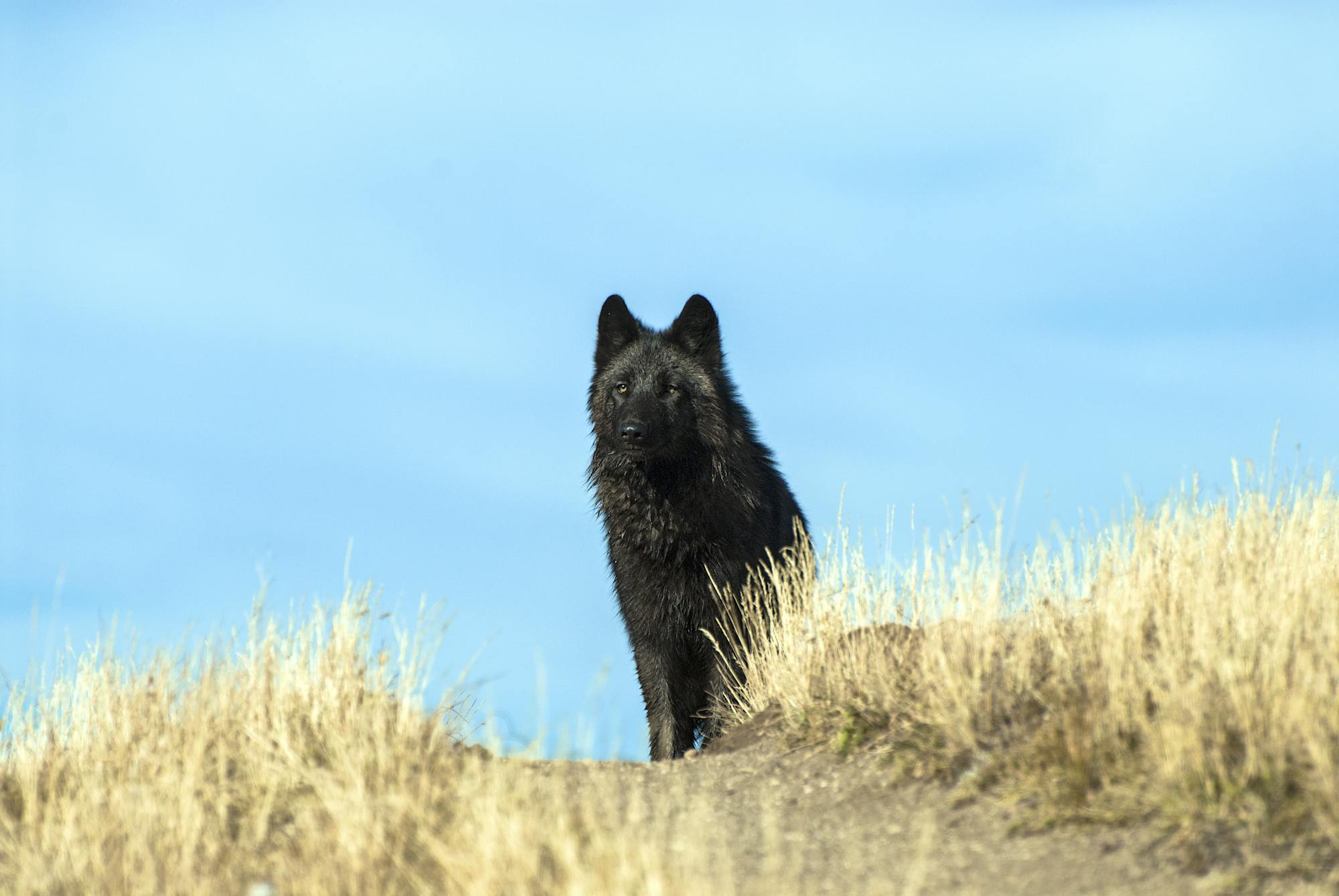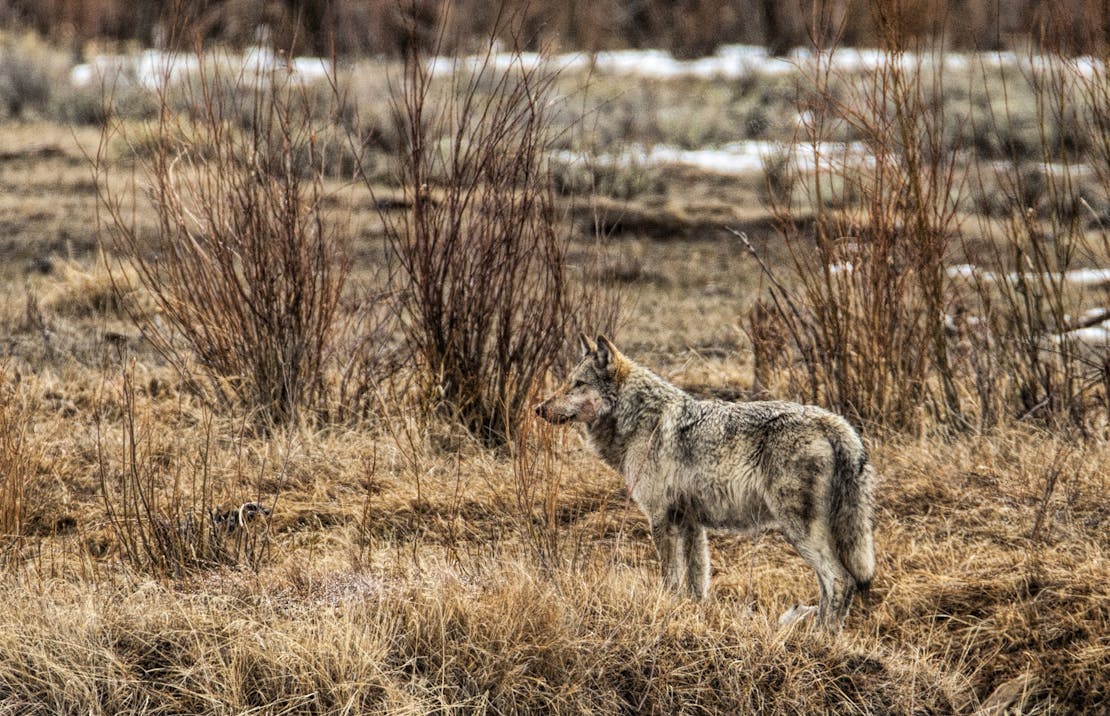The sun has set on a small town, but the full moon helps light the rooftops. A fog has rolled in, lightly blanketing the ground and corners. A young woman ventures out for a walk in the forest just as a wolf steps out of the surrounding trees’ shadows, scenting the air and reveling in the cool evening. Out of nowhere the scene explodes with a bang! The wolf stumbles . . . then falls heavily to the ground.
The innocent wolf is dead.
It’s not the people who should be scared here. It’s the wolves.
What is anti-wolf sentiment?
Sometimes it’s guns, sometimes it’s traps. Regardless of method, there are people who actively seek to kill wolves just for the sake of killing. Tales about the “big bad wolves” are passed down generations, along with the activities aimed at eradicating the animals from the land.
States including Idaho, Wyoming, and Montana continue to see this sentiment rear its ugly head. Conservationists, including Defenders of Wildlife, continue to see regulations and policies put in place in these states from anti-wolf interests that encourage others to partake in wolf hunting and trapping.
Why is this mindset scary?
Anti-wolf sentiment can quickly spiral, prompting deadly wolf hunts which have the potential to wipe out whole populations and alter the landscape completely. When a sentiment informed by misunderstanding like this is passed down it can become part of culture and tradition. Moreso, when the sentiment is passed into legislation, policymakers and the authorities charged with managing wildlife stop listening to science. At this stage, it’s even harder to make progress away from dangerous misconceptions.
For instance, a group in Idaho and Montana began what they called a “reimbursement program.” The problem with the title of the program is people don’t typically get reimbursed for hunting and trapping, as it’s seen as a recreational activity. In actuality, the program is a bounty program. People are getting a monetary reward for hunting and trapping wolves.
At first, so few people were participating that it did not have a significant impact on the state’s wolf population. Now, Idaho’s government contributes to this program and the momentum is negatively impacting the wolf population. In Montana, the momentum is currently isolated in the Northwest corner of the state. The state government is not currently involved, but bills come up every legislative session aimed at increasing their involvement. Both states are pushing their fish and wildlife agencies to decrease their wolf populations to a bare minimum, which is against what the science says and is, in the long-term, unsustainable.
So, are wolves dangerous?
The reality is that humans are much more dangerous to the wolves than they are to us. Wolves prefer to keep to themselves. In fact, anyone who has seen a wild wolf while exploring in the U.S. may consider themselves lucky because it’s such a rare sight! If a wolf does cross your path though, the best practice is to respect wolves as wild and powerful animals. Maintain your distance and stay on marked and designated paths while hiking, biking and riding.
Why are wolves important for our ecosystems?
Wolves are key to keeping ecosystems healthy. They help keep ungulate species, like deer and elk populations in check, which prevents over browsing of native vegetation, further benefiting other animals. Additionally, by culling weaker ungulates, wolves help curb disease. The carcasses of their prey also help to redistribute nutrients and provide food for other wildlife species, like grizzly bears and scavengers.
How you can help wolves!
"The Wolf Man” is just one example of how movies, fairytales and the media have falsely portrayed wolves as scary or villainous. It’s up to all of us to rewrite the narrative to say that wolves are important. Here are three ways to help protect wolves:
- Advocate for wolves. Write to your fish and wildlife commission and tell them to protect wolves and other wildlife. Attend and speak out at public meetings where anti-wolf bills and regulations arise. Do your research on policies and politicians and cast your votes strategically.
- Support groups working to protect wolves. If able, donate to organizations like Defenders of Wildlife which is working on the ground, in the courtroom and on the hill to secure protections for wolves. If you cannot support financially, look into volunteer opportunities to help promote coexistence tools.
- Howl the truth about wolves for all to hear. Share with your friends, family and followers how important wolves are for our ecosystems and what is happening with wolf regulations and policies. Use your platforms to support protection and coexistence.
Join Defenders all October for twists on classic horror movies. Learn about some not-so-spooky animals and the real threats they face!











